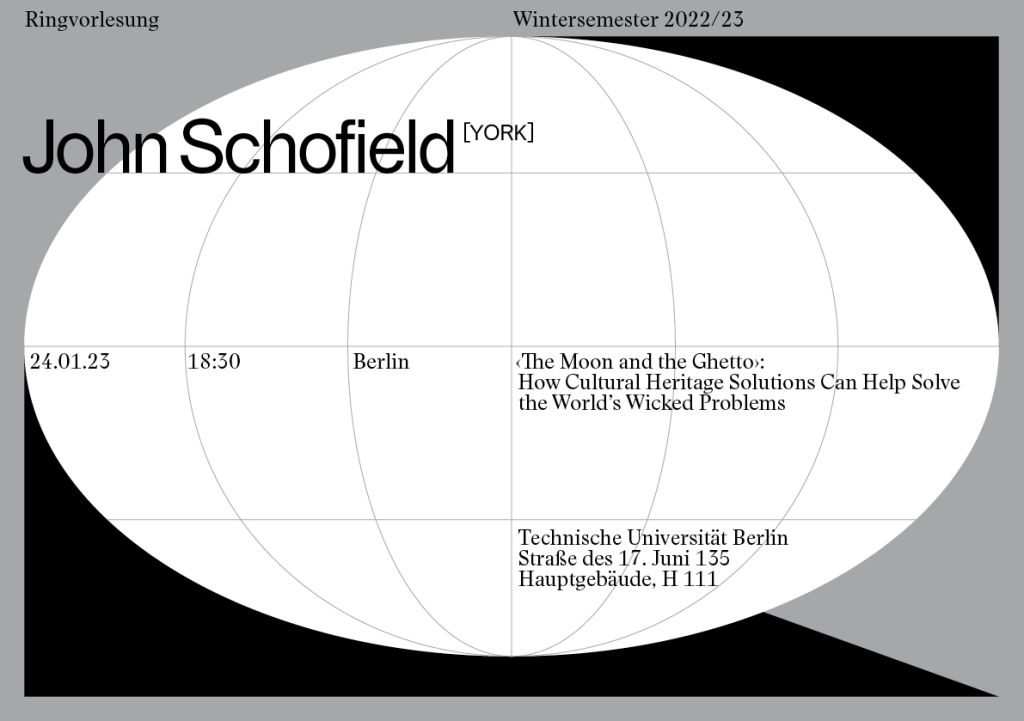John Schofield (York): ‘The Moon and the Ghetto’: How Cultural Heritage Solutions Can Help Solve the World’s Wicked Problems
Wicked problems are those global challenges that are complex, intractable, open-ended and unpredictable. Solving them requires creative and often interdisciplinary solutions that include: collaborating with industry and policymakers; a thorough understanding of the problem; and clear recognition of its complexities.
The example of landing somebody on the moon versus urban poverty is often given to distinguish technically complex but otherwise straightforward, ‘neat’ or ‘tame’ challenges with those that are ‘messy’, exhibiting more complex interwoven elements. Richard Nelson used this particular distinction as the title of his (1977) book, The Moon and the Ghetto.
In this presentation, Professor John Schofield will talk about his ideas for a new book on wicked problems, emphasizing how heritage studies and practice — including archaeology —can contribute to resolving these problems in interesting and surprising ways, albeit through a ‘small wins’ framework. While the book topics are wide in scope, the focus here will be on the wicked problems of physical and mental health, planetary health and social injustice, and how an understanding of the relationships between these problems is vital to resolving them.
Professor John Schofield is Director of Studies in Cultural Heritage Management in the Archaeology Department at the University of York (UK). He also holds adjunct positions at Griffith and Flinders universities (Australia), and is Docent in Contemporary Archaeology and Cultural Heritage at the University of Turku (Finland). John is a Fellow of the Society of Antiquaries of London, a Corresponding Fellow of the Australian Academy of the Humanities and a Member of the Chartered Institute for Archaeologists. He has previously served as Executive Editor of the Taylor and Francis journal World Archaeology.
Following a PhD in prehistoric archaeology at Southampton University, John spent 21 years in policy, heritage protection and research leadership with one of the UK’s lead heritage agencies, English Heritage (now Historic England). During this time he developed an active research interest in contemporary archaeology as well as recognising the need for cultural heritage to be socially engaged. John was then appointed to the University of York in 2010, going on to serve as Head of Archaeology from 2012-2018. John has published extensively on a diversity of topics relating to cultural heritage and contemporary archaeology. Much of this will culminate in his forthcoming book about Wicked Problems.
Technische Universität Berlin
Straße des 17. Juni 135, Hauptgebäude, H 111
